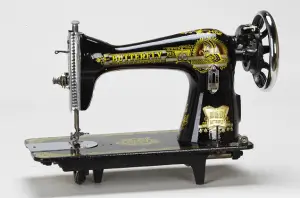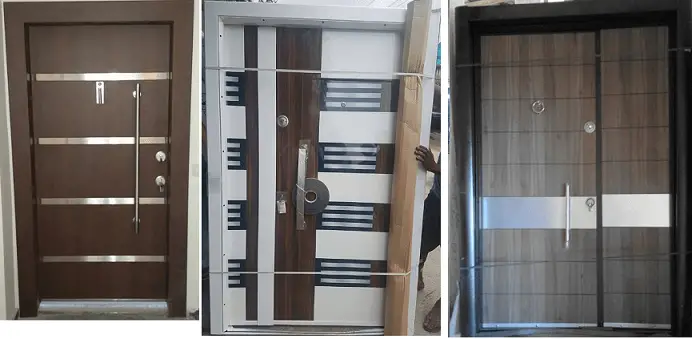Hand Sewing Machine Prices in Nigeria ([year])
Hand sewing machines are an equivalent thing to manual sewing machines. What this suggests is that they’re machines that we deploy without the utilization of electricity. We all know that sewing machines are the principal piece of kit for tailoring and fashion designing.
Why would anyone prefer manual or hand sewing machines? the main reason is their price. These machines are much more affordable than their electronic counterparts.
Within this post, we’ll discuss the costs of hand sewing machines in the Nigerian market. we’ll also provide you with some important information while you shop for a sewing machine as a beginner.
Prices of Hand Textile Machines in Nigeria
The Nigerian textile machine market is crammed with several brands of hand sewing machines. One of the foremost important factors to work out to get the affordable and best machine is to know the pricing position in the market.
So here is that question that begs a response, “how much does it cost to shop for a hand sewing machine in Nigeria?’ To answer this question, we’ve surveyed vendors, both online and offline.
From our results, we’ve come up with an inventory of estimates for you. Check below for the different Hand Sewing Machine and their Price list:
- Xian Industrial Sewing Machine: between N82,500 and N97,500.
- Butterfly Sewing Machine (Manual): between N33,000 and N37,000.
- Janome 2222 Sewing Machine: between N80,000 and N90,000.
- Butterfly Short Table Sewing Machine: between N38,000 and N45,000.
- Michley LSS-505 Multipurpose Sewing Machine (it has in-built stitches): between N22,500 and N31,500.
- Brother XR3774 Full-Featured Sewing Machine: between N45,000 and N55,000.
- Emel Sewing Machine (Manual): between N32,000 and N37,000.
- Singer Heavy Duty 4432 Sewing Machine: between N57,500 and N68,500.
- Emel Industrial Sewing Machine: between N80,000 and N95,000.
- Butterfly Long Table Folding Sewing Machine (Manual): N42,000 and N48,000.
- HaitralSewing Machine: between N12,500 and N20,000.
- Singer Start (1234) Portable Sewing Machine: between N35,000 and N42,500.
These are the foremost popular hand sewing machines in the Nigerian market alongside their prices. Note that the costs may differ slightly counting on your location and therefore the vendor.
Before you buy a hand textile machine, there are a couple of things that you simply should consider. Check them below in the subsequent section.
Types of Sewing Machines
Basically, Sewing Machines are categorized in regard to their functionality, and they have also been categorized counting on their features like quilting, sewing, and embroidery. Sewing Machines are often categorized into five types:
- Mechanical home Sewing Machine.
- Electronic sewing machine.
- Computerized or Automated sewing machine.
- Embroidery Machine.
- Overlock sewing machine or serger.
Mechanical / Domestic Sewing Machines

Giving you a guide on the Mechanical or domestic machines, these machines are known to be manual machines/treadle sewing machines/tailoring machines/domestic sewing machines because the features of these machines are done manually by the user.
These machines are best suitable for beginners who want to start out sewing from basics. These are simple sewing machines with only a few features, inexpensive, and also easily repairable. These sewing machines are not expensive as their counterpart electronic and computerized sewing machines. Here are the features;
- Adjustable stitch length.
- It’s an inbuilt presser foot.
- Adjustable Tension.
- Bottom loading Bobbin.
- Single (straight and reverse) stitch.
Many of the newest model machines have quite one inbuilt stitch pattern. Mechanical sewing machines aren’t suitable for stitching thick fabrics like denim and leather.
One thing of those sewing machines that irritates beginners is the threading of the needle again and again. Treadle and hand-operated machines have just one straight and forward inbuilt stitch capability.
Electronic Sewing Machine
To shed more light on the Electronic sewing machine. Electronic sewing machines in terms of features, the machine has more features than mechanical sewing machines.
The machines are both mechanical sewing machines and computerized sewing machines. Right now Nigerians are getting crazy about DIY (Do It Yourself) and these electronic sewing machines are very useful for DIY -decorative crafting.
Computerized Sewing Machines
Computerized Sewing Machines are technology sewing machines that may be connected to the computer, web, or design-loaded cards. These machines are best advised to be used for industrial purposes. These sewing machines have a pre-install sewing limit which is a maximum of 200 and a minimum of 50.
Best Mechanical sewing machine in Nigeria
- Singer Promise 1408 SEWING Machine.
- Singer Tailor Deluxe Manual Sewing Machine.
- Singer Start 1306 Sewing Machine.
- Usha International Prime Sewing Machine.
- Singer 3229 Simple Sewing Machine.
- Brother LS 2000 Sewing Machine.
Best Electronic Sewing Machine in Nigeria
- USHA Janome Allure Automatic Zig-Zag Electric Sewing Machine.
- Brother GS-2700 Electric Sewing Machine.
- Usha Janome Automatic Stitch Magic 85-Watt Sewing Machine.
- Brother GS-3700 Electric Sewing Machine.
- Singer Brilliance 6180 Sewing Machine.
Best Computerized Sewing Machine in Nigeria
- Juki HZL-K85 Computer-Controlled Household Sewing Machine.
- Usha Janome Dream Maker 120 35-Watt Computerized Sewing Machine.
- Brother INNOV-IS 55P Computerized Sewing Machine.
- Brother FS 101 Computerised Sewing Machine.
- Singer 9980 Quantum Stylist 820-Stitch Computerized Sewing Machine.
Best Embroidery Machine for Novice
- Husqvarna Viking Class H E20 embroidery machine.
- USHA Janome Dream Stitch Automatic Zig-Zag.
- Singer Computerized Embroidery Sewing Machine.
- Singer Curvy 8770 Embroidery Sewing Machine.
- Brother CS6000i.
Some Facts to Consider when Choosing a Hand Sewing machine
As a Fashion Designer, whether you’re a novice or a professional, choosing a stitching machine is usually a difficult process. To reduce the task for you, we’ve come up with a couple of factors that you simply should consider.
The brand
This factor applies to sewing machines and other forms of machines also. Different brands have different reputations.
Certain brands are known for cheaper sewing machines while others are recognized for quality. What are you looking for? If you’re able to sacrifice quality for its worth, then you ought to be able to choose an inferior brand.
However, if you’re more curious about quality and sturdiness, then you ought to choose the top and more popular brands. a number of them include Butterfly, Singer, and Emel. These brands are on the marketplace for a real while and have proven to manufacture high-quality machines.
From the materials, they use in production to their production processes. Interestingly, the very fact that a brand isn’t popular doesn’t mean that it wouldn’t be of excellent quality.
Stitches
Another important factor to think about when choosing your machine is the type of stitches available. there’s always the temptation of being deceived by the number of stitches available. it’s tons more than this.
What you would like is maybe a machine that has both zigzag and straight stitches. These are the essential stitches that you simply need. If there are any extras, then you ought to check for stitches like buttonhole stitch, knit stitch, or blind hemstitch. As a novice sailor, you don’t need such a lot in this regard.
However, as you grow within the profession, your need for a machine that has more stitches grows. As such, you’ll get to upgrade to a machine that will handle more complex stitches or materials.
Noise
Before we plow ahead with now, it’s important to notice that each hand sewing machines make some noise. However, the noise levels differ from one machine to a different one. If you can’t handle such a lot of noise, you shouldn’t purchase a machine that creates such noise.
Asides from yourself, you want to also consider the people around you. for many tailors, their creative juices flow very early in the morning or late in the evening. At both times, everyone else is either asleep or resting. Meaning that a loud machine will cause you to become a nuisance in your environment.
To avoid unnecessary issues with housemates and neighbors, it’s best to take a position during a quieter machine. How does one know which machine doesn’t make much noise? Check reviews online, speak to experienced tailors around, and ask your vendor.
Frequency of use
How often does one make use of the machine? There are two categories of machine users, light users, and heavy users. If you run a tailoring shop and you handle several sewing tasks all day long, you’re an important user.
On the opposite hand, if you simply use your machine once in a while, you fall under the sunshine user category. For a tailor within the heavy user category, you would like to get a machine that will handle consistent use.
In other words, you would like a heavy-duty machine from a brand that features a diary of durability. Investing in anything aside from this may see you back in the marketplace for a machine very soon.
As you’ll tell, heavy-duty machines are costlier but they’re worth spending on. If you’ll be using your machine once for a long time, then an easy regular machine is simply perfect.
Budget
Finally, we must discuss what proportion you’re willing and ready to spend on your machine. the overall rule when buying sewing machines or the other thing is to travel for what you’re ready to buy.
There are very affordable sewing machines that also fall into the heavy-duty class. Finding them goes to requires some extra work.
You’ll need to research the market properly to seek out the simplest machines within the category you’ll afford.



